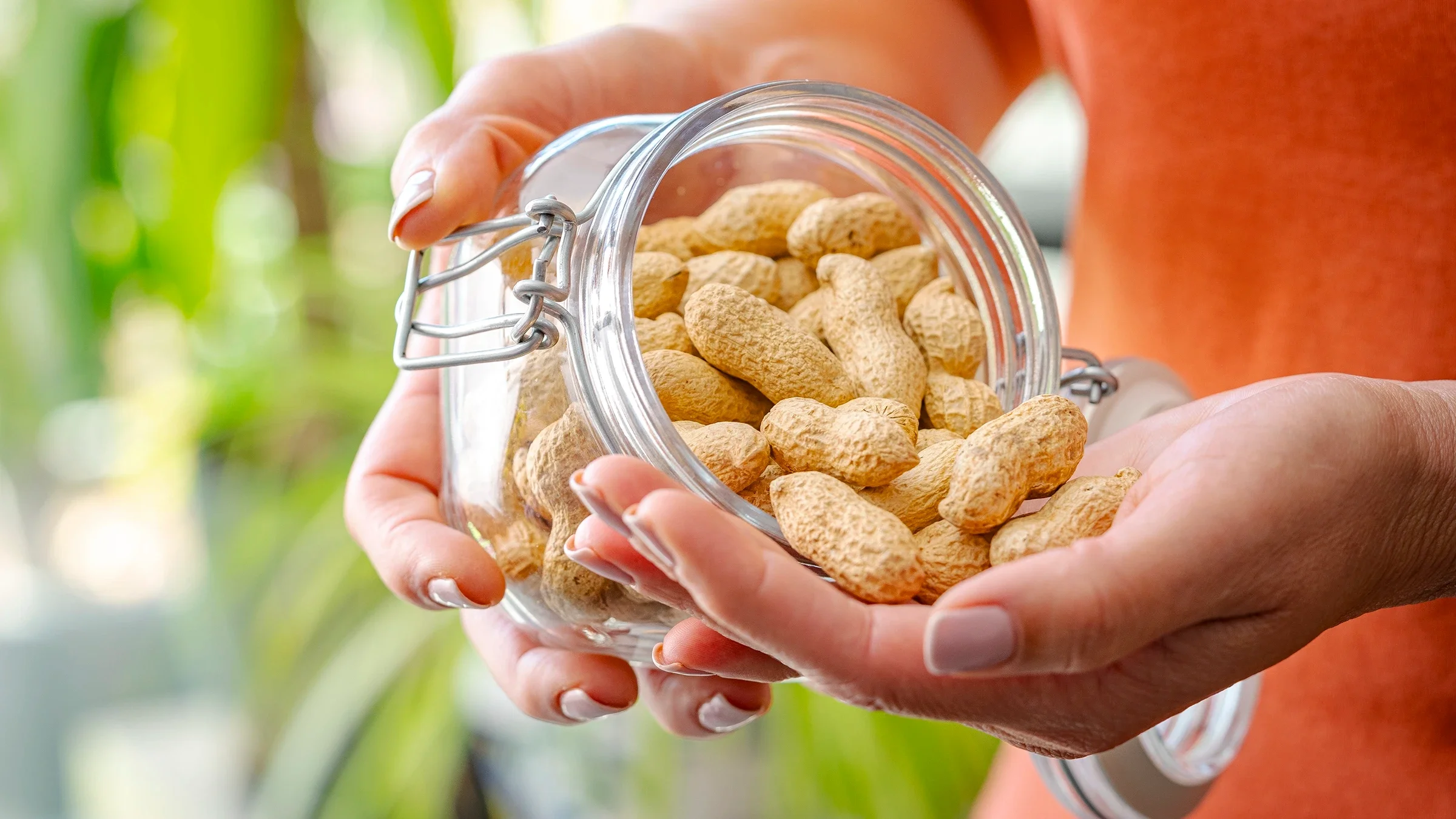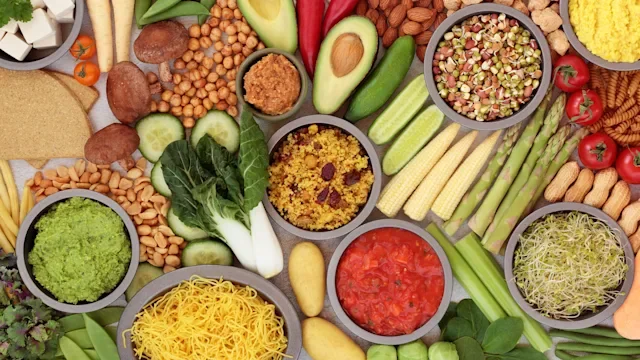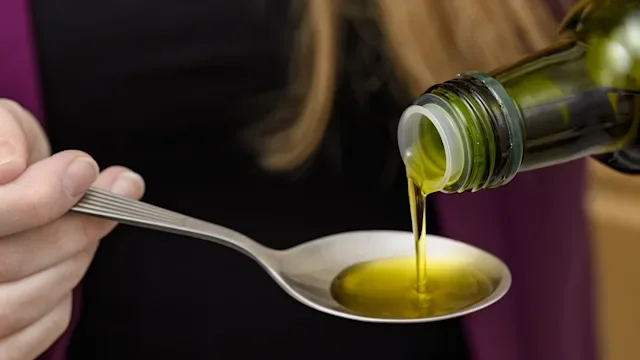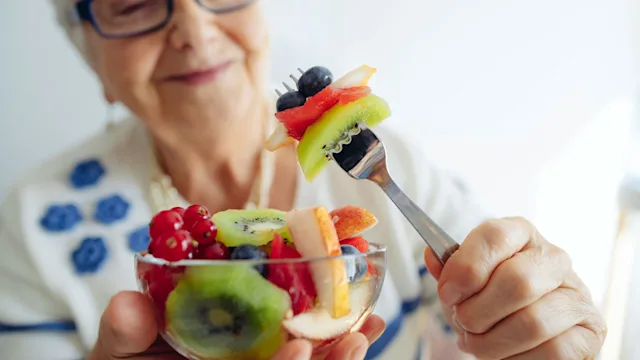Key takeaways:
Biotin is a B vitamin that helps your body turn nutrients from food into energy that you can use. Many people use biotin supplements for hair and nail growth, but there isn’t evidence to support this use for most people.
Chicken liver, eggs, and peanuts are among the foods high in biotin.
Most people get enough biotin from their diet and don’t need biotin supplements.
Biotin, also known as vitamin B7, is crucial to the everyday functions of your body. One of biotin’s most important jobs is to help your body turn the fat, sugar, and protein you eat into energy.
And maybe you’ve heard of people taking biotin supplements to boost hair and nail health. There isn’t much scientific evidence to support that use for most people. But it’s still important to get enough biotin because of its other roles in the body. Luckily, there are plenty of biotin-rich foods.
Let’s take a look at 10 foods that have biotin.
Note: The FDA doesn’t require food labels to list biotin content unless biotin has been added. And in many cases, the actual value differs from the published number. So it’s not always possible to know the exact amount of biotin in foods. But based on the available research, we know these foods and food groups have documented biotin content.
1. Chicken liver
Biotin content: 138 mcg per 3 oz (460% of the daily value, or DV)
Chicken liver not only meets your daily value for biotin, it exceeds it. But this isn’t harmful, because biotin is a water-soluble vitamin. That means that excess biotin you consume isn’t stored in your body. Instead, it’s flushed out in your urine.
Chicken liver is also high in vitamin B12 (cobalamin), which helps make red blood cells and protect nerves. And chicken liver is also an excellent source of vitamin B3 (niacin), with nearly 75% of the recommended daily amount. Like biotin, niacin helps turn food into energy.
2. Beef liver
Biotin content: 30.8 mcg per 3 oz (103% DV)
One serving of beef liver contains all the biotin you need for the day. It’s also high in iron, which your body needs to make hemoglobin. Hemoglobin is a protein in red blood cells that carries oxygen from the lungs to the rest of the body. A serving of beef liver has 5 mg of iron. This can be up to a quarter of the recommended daily amount, depending on your individual needs.
Natural hair-growth remedies: Natural hair-growth remedies have little evidence to support them, but most are low-risk and safe to try at home.
Which foods help hair growth? Certain foods — like eggs, avocado, and yogurt — may help support hair growth, especially if you’re missing key vitamins and nutrients.
Can you fix brittle nails? Brittle nails can be caused by several factors, including handwashing and low iron levels. But there are ways you can strengthen your nails.
Beef liver is also high in copper (1,378% DV), a mineral that helps your body make blood vessels and produce energy, among other things. Copper toxicity is rare for people in good health, but getting too much copper on a regular basis can be harmful for your health.
3. Eggs
Biotin content: 10 mcg per egg (33% DV)
Eggs are full of B vitamins. Their vitamin B2, or riboflavin (18% DV), helps your body create red blood cells. Their vitamin B5, or pantothenic acid (15% DV), plays a role in the production of hormones and energy. Eggs also contain the essential nutrient choline, which helps with heart health, brain function, and liver health.
4. Peanuts
Biotin content: 4.91 mcg per ounce (16% DV)
Peanuts have the highest protein of any nut (even though they’re technically a legume), with over 7 g per serving.
Peanuts are an excellent source of fiber, which makes them different from the many animal-protein sources of biotin. Getting enough fiber is important for digestive health. But fiber is good for your overall health, too, since it:
Supports heart health by lowering your cholesterol levels
Stabilizes your blood sugar
Reduces your risk of colon cancer
Boosts your immune system
5. Pork loin
Biotin content: 3.8 mcg per 3 oz (13% DV)
Pork loin is one of the highest-protein meats, with over 24 g per serving. Pork is also an excellent source of selenium (54% DV), a mineral that supports your immune system and your thyroid. And it also has high amounts of thiamine (72% DV). Also called vitamin B1, thiamine supports your nervous system and cardiovascular health.
6. Salmon
Biotin content: 5 mcg per 3 oz (17% DV)
Salmon contains a high amount of omega-3 fatty acids. These are healthy fats that have many crucial functions in your body. Omega-3s build and maintain healthy cells, reduce inflammation, and help regulate the levels of fats in your blood.
Salmon is also a great source of vitamin D (89% DV). In fact it’s one of the few foods that contain vitamin D naturally. Salmon and other vitamin D foods help the body absorb calcium, which is important for bone health.
7. Sunflower seeds
Biotin content: 2.6 mcg per ¼ cup, or about 1 oz (9% DV)
Sunflower seeds are full of nutrients. They contain plant protein, healthy fats, fiber, and selenium. Sunflower seeds also contain vitamin E, with nearly 50% of your daily needs. One of vitamin E’s roles is to prevent blood clots. And, since vitamin E is an antioxidant, it protects your cells from damage, and boosts immune health.
8. Ground beef
Biotin content: 3.8 mcg per 3 oz (13% DV)
Ground beef is high in zinc, with 5 mg per serving, which is about half of the daily recommended amount. In fact, beef is the primary source of zinc for most people in the U.S. Zinc is important for wound healing, metabolism, and skin health.
9. Sweet potatoes
Biotin content: 2.4 mcg per ½ cup (8% DV)
Sweet potatoes are high in vitamin A. Just one serving provides more than half the daily recommended amount. Vitamin A helps your body make immune cells that fight off illness. And, as an antioxidant, vitamin A protects your body’s cells from damage that can otherwise increase your risk of chronic conditions.
10. Almonds
Biotin content: 1.5 mcg per ¼ cup (5% DV)
Almonds are the most popular nut in the U.S., and they’re extremely nutritious. They’re high in protein, with more than any other tree nut. They’re also higher in calcium, fiber, and vitamin E than any other nuts. Almonds’ high vitamin E (55% DV), healthy unsaturated fats, and fiber all support heart health.
What does biotin do in the body?
Biotin’s main role is to help your cells work correctly. Biotin helps convert the protein, carbohydrates, and fat you eat into energy that your body can use. Without biotin, the enzymes that metabolize the food you eat wouldn’t be able to work. Biotin also helps your cells and genes communicate with each other to keep your body running smoothly.
But biotin might be best known for its connection to hair and nail health. Many people take biotin supplements to support their hair and nails. But the evidence doesn’t really support this use for most people. So what explains this persistent trend?
People with low levels of biotin are more likely to experience hair loss. And if you have low biotin levels, then supplementing with biotin may help your hair and nails. But most research suggests that unless you have a known biotin deficiency, biotin supplements are unlikely to help with hair growth.
Eating biotin-rich foods vs. taking biotin supplements
The amount of biotin adults need each day is 30 mcg. Since most people get enough biotin from their diet, they don’t need to take biotin supplements.
But there are factors that may increase a person’s risk of low biotin, including:
Pregnancy
Having biotinidase deficiency, a genetic disorder in which the body is unable to use and recycle biotin
Chronic alcohol use in high amounts
Smoking
Long-term use of anti-seizure medications or antibiotics
Frequently asked questions
There isn’t evidence that biotin causes acne. But some B vitamins, namely B6 and B12, have been linked to acne. So if you’re supplementing biotin through a vitamin B complex, then it’s important to keep in mind that you’re getting a mix of several B vitamins, including those that may contribute to acne.
Signs of biotin deficiency can include thinning hair or hair loss, seizures, and skin infections/rashes. It can sometimes cause tingling hands and feet. But a biotin deficiency is rare. And it’s most often linked to specific factors, such as chronic high alcohol use, pregnancy, nursing, and the inherited condition biotinidase deficiency.
There aren’t known side effects from taking biotin. But biotin can affect certain blood test results. If you’re getting blood tests, let a healthcare professional know if you take biotin. Consuming biotin from food isn’t likely to affect blood tests.
The short answer is probably not. Biotin is safe to take, even in high doses. There hasn’t been a documented case of biotin toxicity. In one study, people with multiple sclerosis took 300 mg of biotin each day, which is 10,000 times the recommended daily dose. Even at this high dose, there were no reported side effects or cases of toxicity. But whenever you’re considering a supplement, it’s a good idea to consult with a healthcare professional to discuss what’s right for you.
There isn’t evidence that biotin causes acne. But some B vitamins, namely B6 and B12, have been linked to acne. So if you’re supplementing biotin through a vitamin B complex, then it’s important to keep in mind that you’re getting a mix of several B vitamins, including those that may contribute to acne.
Signs of biotin deficiency can include thinning hair or hair loss, seizures, and skin infections/rashes. It can sometimes cause tingling hands and feet. But a biotin deficiency is rare. And it’s most often linked to specific factors, such as chronic high alcohol use, pregnancy, nursing, and the inherited condition biotinidase deficiency.
There aren’t known side effects from taking biotin. But biotin can affect certain blood test results. If you’re getting blood tests, let a healthcare professional know if you take biotin. Consuming biotin from food isn’t likely to affect blood tests.
The short answer is probably not. Biotin is safe to take, even in high doses. There hasn’t been a documented case of biotin toxicity. In one study, people with multiple sclerosis took 300 mg of biotin each day, which is 10,000 times the recommended daily dose. Even at this high dose, there were no reported side effects or cases of toxicity. But whenever you’re considering a supplement, it’s a good idea to consult with a healthcare professional to discuss what’s right for you.
The bottom line
Biotin is a B vitamin that helps your body convert the food you eat into energy. If you eat a balanced diet, you’re most likely getting plenty of biotin. That’s because many common foods contain it. Examples of foods that have biotin are eggs, almonds, and ground beef. And though it’s popular to take biotin supplements for hair and nails, the research doesn’t support this for people who have normal biotin levels.

Why trust our experts?



References
Bentley, J. (2019). Almonds lead increase in tree nut consumption. Economic Research Service.
Cervantes, A., et al. (2025). Biotin deficiency. StatPearls.
Espiritu, A. I., et al. (2021). High-dose biotin for multiple sclerosis: A systematic review and meta-analyses of randomized controlled trials. Multiple Sclerosis and Related Disorders.
Health Resources & Services Administration. (2024). Biotinidase deficiency.
Huang, Z., et al. (2018). Role of vitamin A in the immune system. Journal of Clinical Medicine.
MedlinePlus. (2024). Hemoglobin test.
My Food Data. (n.d.). Beef, ground (minced), 80% lean meat / 20% fat, raw.
My Food Data. (n.d.). Canned salmon.
My Food Data. (n.d.). Chicken, liver, all classes, cooked, pan-fried.
My Food Data. (n.d.). Dry roasted almonds.
My Food Data. (n.d.). Dry roasted sunflower seeds.
My Food Data. (n.d.). Eggs (raw).
My Food Data. (n.d.). Pan fried beef liver.
My Food Data. (n.d.). Pork, fresh, loin, whole, cooked, roasted.
My Food Data. (n.d.). Raw peanuts.
My Food Data. (n.d.). Raw sweet potatoes.
Natarelli, N., et al. (2023). Integrative and mechanistic approach to the hair growth cycle and hair loss. Journal of Clinical Medicine.
Nosewicz, J., et al. (2022). The epidemiology, impact, and diagnosis of micronutrient nutritional dermatoses. Part 2: B-complex vitamins. Journal of the American Academy of Dermatology.
Office of Dietary Supplements. (2022). Biotin. National Institutes of Health.
Office of Dietary Supplements. (2022). Copper. National Institutes of Health.
Rosner, I., et al. (2019). Clinically significant lab errors due to vitamin B7 (biotin) supplementation: a case report following a recent FDA warning. Cureus.
Sanvictores, T., et al. (2024). Vitamin B5 (pantothenic acid). StatPearls.
Staggs, C. G., et al. (2004). Determination of the biotin content of select foods using accurate and sensitive HPLC/avidin binding. Journal of Food Composition and Analysis.














